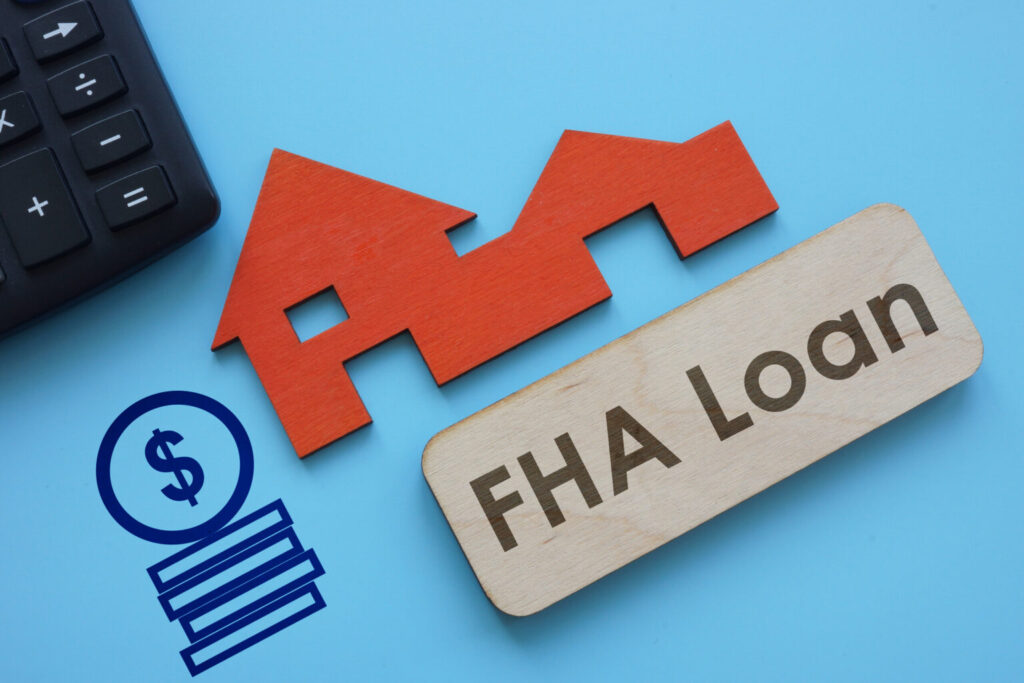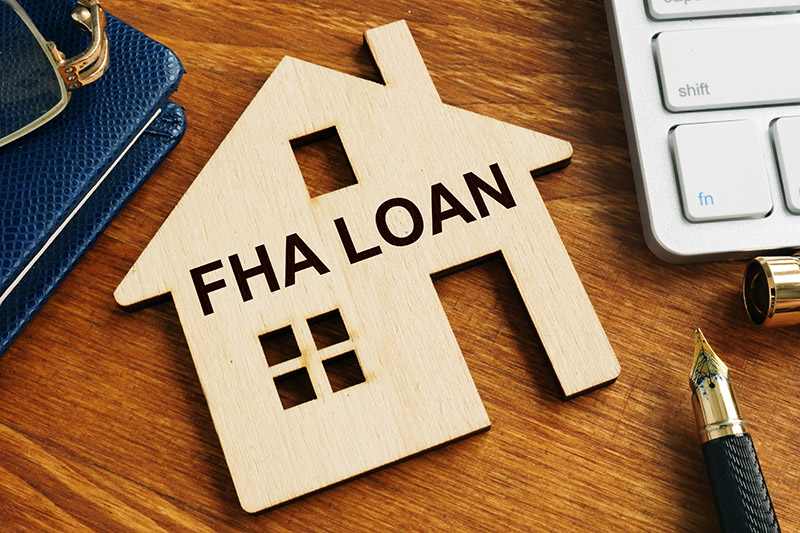Introduction
If you’re looking to secure a mortgage for your home, buyers have many choices. The most well-known is that of the Federal Housing Administration (FHA) loan, which is fast being regarded as the preferred option for buyers who have never bought a home before and who have less than perfect credit. If you’re planning to purchase homes, knowing the advantages of having an FHA loan is vital. In this blog, we’ll discuss the primary benefits of fha loan, including the reason why they are increasingly sought-after by buyers, as well as how they may be a suitable option for you. At the end of the day you’ll comprehend the reason FHA mortgages are becoming increasingly well-known in the world of real estate today.

Problem: The Challenges of Homeownership
Prior to getting to the pros and cons from FHA loans, we need to understand the challenges that homebuyers face every today. A house purchase is an enormous financial investment which, for the majority of people, is unattainable due to these factors:
- The highest down payments for conventional loans usually need a downpayment of at least 20. If you buy a home worth $300k, this is $60,000 upfront, which is not affordable for many homebuyers, particularly first-time buyers.
- Credit Score Problems – Traditional loans usually need an average credit score of 700 or more. If your score falls under that mark, securing the loan could take a lengthy and frustrating procedure.
- The strictest requirements for income – Lenders generally require a steady and high income to be able to grant the loan. This may leave a lot of potential customers having difficulty meeting the requirements.
This creates a huge distinction between homeowners who are interested in homeownership. That’s where FHA loans come in.
Agitation: A Financial Burden for Buyers
The financial burden buyers confront when trying to get conventional mortgages is real. In the case of a typical house, the price within the United States as of 2024 is estimated at $400,000. A down payment of 20% for that is around an amount that most homeowners aren’t able to afford immediately. If you’re struggling to save for a big down payment or are dealing with problems with credit, the standard mortgage process can seem like an endless obstacle course.
As you can imagine, this could lead to disappointment. It’s depressing to discover the perfect house, only to discover it’s impossible to secure the mortgage you want. Homebuyers are faced with two choices either waiting for the ideal home, or letting go of the idea of owning the dream house.
Solution: The Benefits of FHA Loans
The reason is that the FHA loan is an amazing game changer. The FHA loan came to existence in 1930, during the middle of Great Depression, to help homeowners buy houses while housing market was falling.
The government backs the FHA mortgage, which has many distinct advantages that allow homeownership to a wider range of individuals. Explore the major benefits of FHA loans, which result in more than a few buyers opting for these loans over conventional ones.
1. Lower Down Payments
One of the appealing benefits that is among the most attractive advantages associated with the FHA loan is the reduced requirement for down payments. In contrast to conventional loans, which typically demand an initial down payment of 20 percent, FHA loans require just 3.5 percent. This can be a great option for those trying to make a down payment to buy the home they want.
In the example above, buying a house for $250,000, for example, a 3.5 percent down payment would be just $8,750, in contrast to $50,000 under a conventional mortgage. It’s a significant improvement, which substantially lowers the barriers to homeownership.
2. Easier Credit Qualifications
FHA loans are less lenient in terms of credit scores. In contrast to conventional loans that need an average credit score of 700 or greater, FHA loans allow for scores that are as low as 580 and allow for the 3.5 percent down amount. Even if your credit rating is in the range of 500-579, You can still be eligible to get an FHA loan. But, you’ll need to contribute 10% of your earnings.
This versatility allows FHA loans a desirable option for people who have faced problems with their finances before including unemployed, medical bills, or in the case of late payments.
3. Lower Closing Costs
The closing expenses of mortgages for houses are often substantial. for a typical loan it could be as high as approximately up to 5 per cent of the amount. FHA loans permit less expensive closing costs and permit sellers to provide up to 6 percent of the purchase price towards these expenses. This puts less financial strain on buyers and helps make the whole process much more manageable.
4. Competitive Interest Rates
FHA loans typically offer competitive interest rates even for those who have low credit scores. It can result in huge savings throughout the loan. Since the FHA guarantees the loan, the lenders are more likely to give favorable rates as they know they will have security coverage in the event of a borrower’s failure to pay.
5. Assumable Loan Feature
One of the unique advantages of an FHA loan is the fact that it’s assumable. This means that should you decide to sell your house at some point in the future, a buyer may assume the FHA loan, which includes its terms and interest rates. It can also make your home more attractive to prospective buyers, particularly in an interest rate market, when the locking-in of a low interest rate can be extremely beneficial.
6. Refinancing Opportunities
Another advantage of FHA loans is the possibility to refinance easily. It is possible to refinance your loan with ease. The FHA Streamline Refinance program allows existing FHA customers to refinance their loans with few documents and does not require an appraisal. It is an easy and cost-effective way to cut the interest rate of your loan or alter the terms of your loan if interest rates decrease.

My Opinion on the FHA Loan
When I was first looking into the possibility of buying a home, I was overwhelmed by all of the choices available. It wasn’t easy to save at least 20% of the down payment, which was a challenge given my current savings as well, and my credit score was not top-notch. Then, I learned about FHA loans. A lower cost of a down payment, as well as flexible credit criteria, gave me the feeling that I had the chance to finally fulfill my goal of owning a home. In retrospect, obtaining to take out an FHA loan was among the best financial choices I’ve made.
Real-Life Case Study: FHA Loan in Action
Consider the case of Sarah, who was a first-time homeowner with the same issues that many of us face: a credit score that was not perfect and a small savings. Sarah was able to get an average credit score of 620 and only saved $8,000 to cover the down cost. If she had tried to apply for an ordinary loan, however, she would have been turned down because of her credit score and low price. Then, she turned to the FHA loan. She obtained the money she required with the benefit of a 3.5 percent down payment, an affordable interest rate, and advantageous conditions.
When she moved into her new residence, Sarah realized that not only was she able to be a homeowner and live in the home, but she was paying much less each month than what she would pay with a traditional mortgage. The FHA loan helped make homeownership feasible and affordable for Sarah and could be the same for you.
My Take on the FHA Loan
To me, the FHA loan provided a source of support. I recall feeling trapped as I could not save up enough for a conventional down cost. I was even considering dropping the plan of purchasing the home of my dreams. However, once I learned about FHA loans and realized how easy they could be, the entire situation transformed. A low down payment makes homeownership seem like an achievable possibility, and I can confidently move into the future. If you’re struggling to pay an enormous down payment or are worried about your credit rating, the FHA loan may be the thing you’ll need to move to the home of your dreams.
Why More Buyers Are Turning to FHA Loans
Why are so many customers choosing FHA loans? They provide genuine solutions to the issues. FHA loans allow homeowners to get a mortgage for people who could have been excluded from homeownership because of high down payment conditions, bad credit history, or insufficient savings. In addition, with the rising financial crisis that is affecting real estate, FHA loans are a crucial step toward homeownership for a lot of Americans.
The amount of FHA loans has progressively increased in the past, with recent data showing that FHA-backed loans now make up more than 20% of mortgages on houses in the U.S. This trend will likely grow as more homeowners recognize the advantages and ease of obtaining FHA loans.

Conclusion
For those first-time home owners or have less less-than-perfect credit score An FHA mortgage is the perfect option. It offers lower monthly payments, flexible credit guidelines, and competitive rates of interest; FHA loans have helped many buyers take that first step toward home ownership. If you’re having trouble obtaining a traditional mortgage, it’s an ideal time to think about the advantages of the FHA loan. Do not let the high cost of a down payment or financial issues get in your path. An FHA loan may help enable you to make your desire to own an apartment a reality.
FAQS
1. What exactly is the definition of an FHA loan?
A FHA credit is a type of mortgage that is insured through the Federal-Housing-Administration (FHA). It is designed to help low-to-moderate-income borrowers, particularly first-time homebuyers, purchase a home with more lenient requirements for down payments and credit scores.
2. What are the primary advantages of having an FHA loan?
The main benefits include:
- Requirements for lower down payments (as low as 3.5 percent)
- Credit score requirements that are more flexible
- Lower cost of closing
- Interest rates competitive
- Refinancing is easy by using the FHA Streamline program. FHA Streamline program
- Option for loan to be assumed by prospective buyers
3. How much down payment will I require to obtain the FHA loan?
In the case of an FHA loan, the down payment for an FHA loan will typically be 3.5 percent of the purchase cost if you have a credit score of at least 580. If you have a credit score between 579-500, you could still qualify, but you’ll need to pay 10% of the purchase price.
4. Are I eligible for an FHA loan even if I don’t have a good credit score?
Absolutely, FHA credit is more accommodating of credit scores with lower ratings than traditional loans. The eligibility requirements for an FHA loan even with a credit score of as little as 580 or those with scores between 500 and 579 when you’re able to pay more of a down the amount.
5. Are FHA loans just for first-time buyers of homes?
Although FHA loans are popular among new homebuyers, they’re accessible to all who meet the eligibility requirements. You don’t have to be a first-time purchaser. However, the property has to be your main home.
6. What are the minimum income requirements to qualify for applying for an FHA loan?
Although FHA loans are more flexible in guidelines for income than traditional loans, they still require you to demonstrate that you can manage the cost of the mortgage. Most lenders will consider your debt-to-income (DTI) ratio. It is usually less than 43%.
7. What is the difference between FHA loans and traditional loans?
FHA loans are more flexible in their qualifications (lower down payments, more flexible credit scores); however, they have borrowers who make mortgage insurance payments (MIP) throughout the term of their loan. Conventional loans, even though they require greater credit scores as well as deposits, do not include MIP when you put down at least 20.
8. What exactly is FHA mortgage insurance? How do they work?
FHA loans are subject to mortgage insurance fees (MIP) to shield the lender from default. The cost of this is usually more expensive in comparison to PMI, which is private mortgage insurance (PMI) on conventional loans.
9. Refinance my FHA loan quickly.
Yes, there is a way to do it. FHA provides an FHA Streamline Refinance program, which permits homeowners who have existing FHA loans to refinance their loans quickly and without a lot of paperwork. It typically does not require the appraisal of income or any other verification, which makes it a faster and easier procedure.

